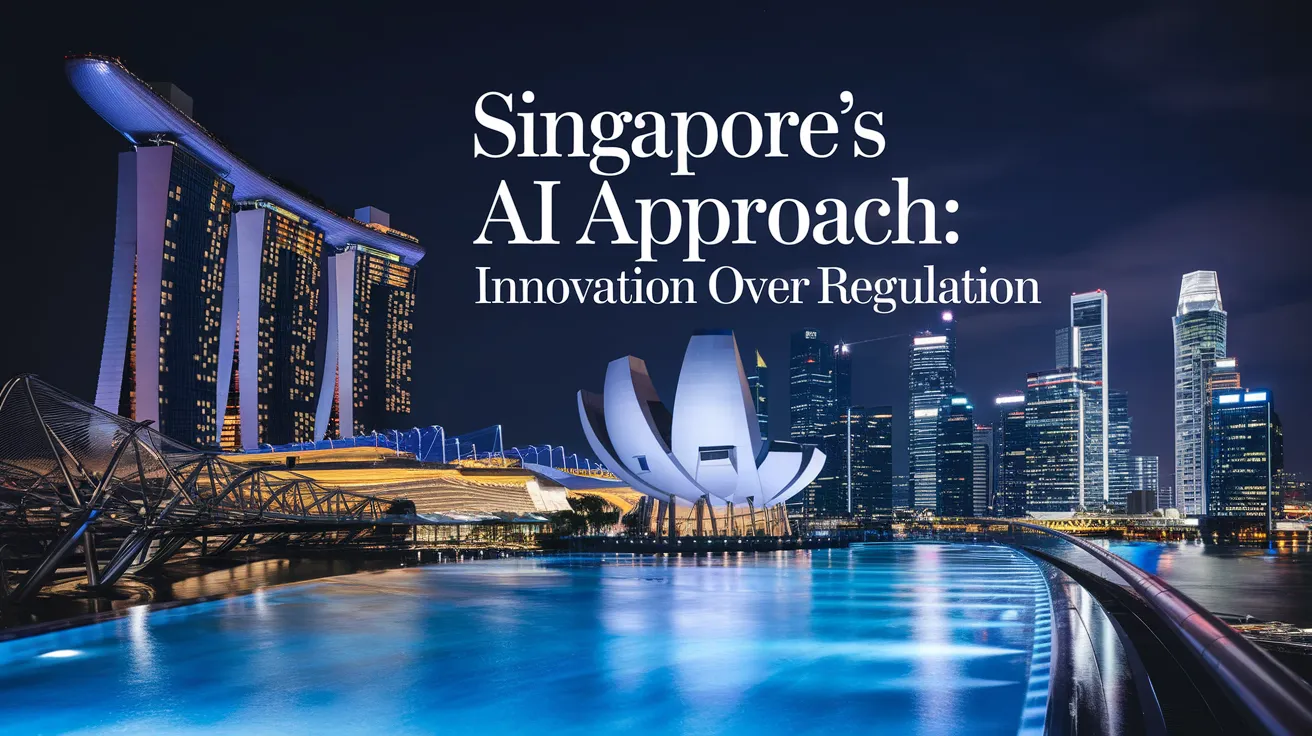Singapore’s AI Approach: Innovation Over Regulation

As the West grapples with regulatory frameworks for artificial intelligence (AI) and cryptocurrency, Singapore is taking a distinctive approach by embracing live deployments of AI systems and refining its crypto licensing strategies. This forward-thinking model positions Singapore as a leader in the e-governance landscape, contrasting sharply with the lengthy deliberations seen in Europe and the United States.
A Sandbox Approach to Innovation
At the heart of Singapore’s success is a sandbox-first approach, which encourages innovation rather than treating it as a threat. This concept allows organizations to experiment with new technologies in a controlled environment, enabling them to refine their methodologies without being bogged down by excessive regulation.
The EU’s ambitious Artificial Intelligence Act serves as a cautionary tale, highlighting the pitfalls of over-regulation. Although it aims to establish comprehensive regulations for AI implementations, the act’s lengthy compliance hurdles deter innovation, particularly in critical sectors such as healthcare and finance where clear guidance is vital.
Comparison with U.S. Approach
Similarly, the U.S. faces its own set of challenges, with various states introducing AI bills without a cohesive federal strategy. This fragmented approach has resulted in operational chaos, where different jurisdictions impose conflicting regulatory standards, exacerbating uncertainty in the marketplace.
Advancements in AI and Crypto Gold Rush
In contrast, Singapore has adopted a rapid deployment model. Following the outflow of crypto firms from Western jurisdictions due to regulatory uncertainty, the Monetary Authority of Singapore facilitated an increase in licensing approvals, fostering a competitive and compliant fintech ecosystem. In June 2025, the authority implemented decisive regulations requiring crypto companies to be fully licensed, targeting firms using Singapore’s reputation without proper oversight.
This proactive regulatory stance has led to a more sustainable and legitimate crypto market within Singapore, with 19 major cryptocurrency service providers now authorized to operate under its regulations. Drawing on the value of collaboration and community engagement, Singapore’s strategies allow for optimization without compromising safety or efficacy.
Challenges and Future Opportunities
However, like all innovations, the integration of AI into society is fraught with challenges. Effective policies need to evolve continuously, keeping pace with the rapidly changing technological landscape. Addressing issues like algorithmic bias, data privacy, and the ethical implications of AI deployment remains essential for ensuring its success.
Looking ahead, other countries are beginning to take note of Singapore’s approach, recognizing that specialized governance technologies can yield benefits that vastly outweigh the risks of stagnation common in more regulatory-restrictive environments. To capture the economic advantages of AI and innovation, nations must prioritize speed, adaptability, and continuous refinement in their governance frameworks.
In summary, Singapore’s strategies exemplify a tailored approach that effectively harnesses the power of AI while addressing the social and economic opportunities it presents. As the global race for AI leadership intensifies, the need for responsive policy and innovation will become more crucial than ever.